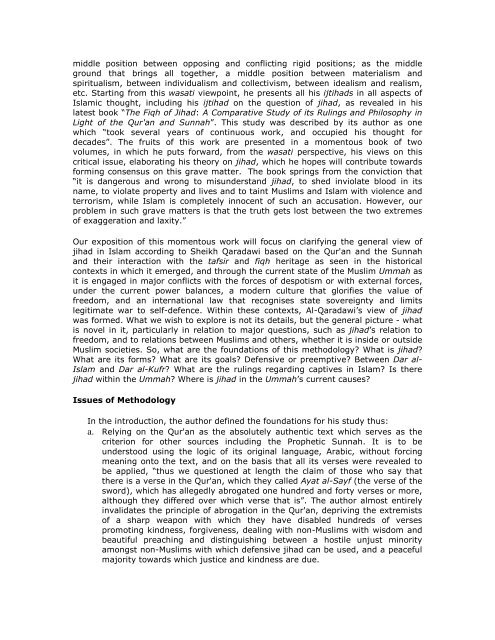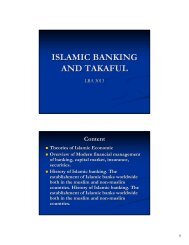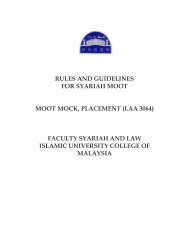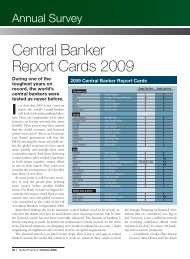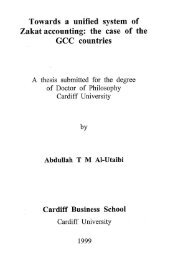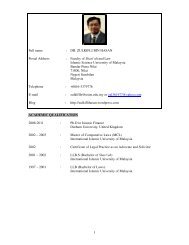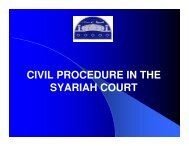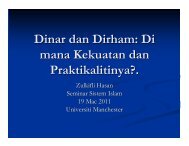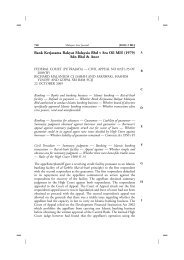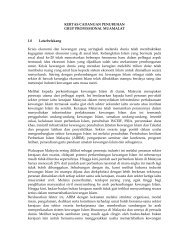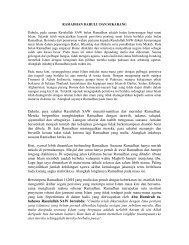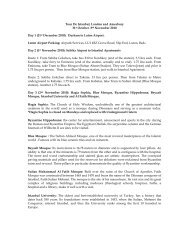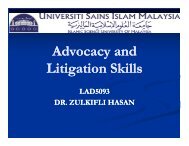Fiqh al Jihad Sheikh Yusuf al Qaradhawi
Fiqh al Jihad Sheikh Yusuf al Qaradhawi
Fiqh al Jihad Sheikh Yusuf al Qaradhawi
You also want an ePaper? Increase the reach of your titles
YUMPU automatically turns print PDFs into web optimized ePapers that Google loves.
middle position between opposing and conflicting rigid positions; as the middle<br />
ground that brings <strong>al</strong>l together, a middle position between materi<strong>al</strong>ism and<br />
spiritu<strong>al</strong>ism, between individu<strong>al</strong>ism and collectivism, between ide<strong>al</strong>ism and re<strong>al</strong>ism,<br />
etc. Starting from this wasati viewpoint, he presents <strong>al</strong>l his ijtihads in <strong>al</strong>l aspects of<br />
Islamic thought, including his ijtihad on the question of jihad, as reve<strong>al</strong>ed in his<br />
latest book “The <strong>Fiqh</strong> of <strong>Jihad</strong>: A Comparative Study of its Rulings and Philosophy in<br />
Light of the Qur'an and Sunnah”. This study was described by its author as one<br />
which “took sever<strong>al</strong> years of continuous work, and occupied his thought for<br />
decades”. The fruits of this work are presented in a momentous book of two<br />
volumes, in which he puts forward, from the wasati perspective, his views on this<br />
critic<strong>al</strong> issue, elaborating his theory on jihad, which he hopes will contribute towards<br />
forming consensus on this grave matter. The book springs from the conviction that<br />
“it is dangerous and wrong to misunderstand jihad, to shed inviolate blood in its<br />
name, to violate property and lives and to taint Muslims and Islam with violence and<br />
terrorism, while Islam is completely innocent of such an accusation. However, our<br />
problem in such grave matters is that the truth gets lost between the two extremes<br />
of exaggeration and laxity.”<br />
Our exposition of this momentous work will focus on clarifying the gener<strong>al</strong> view of<br />
jihad in Islam according to <strong>Sheikh</strong> Qaradawi based on the Qur'an and the Sunnah<br />
and their interaction with the tafsir and fiqh heritage as seen in the historic<strong>al</strong><br />
contexts in which it emerged, and through the current state of the Muslim Ummah as<br />
it is engaged in major conflicts with the forces of despotism or with extern<strong>al</strong> forces,<br />
under the current power b<strong>al</strong>ances, a modern culture that glorifies the v<strong>al</strong>ue of<br />
freedom, and an internation<strong>al</strong> law that recognises state sovereignty and limits<br />
legitimate war to self-defence. Within these contexts, Al-Qaradawi’s view of jihad<br />
was formed. What we wish to explore is not its details, but the gener<strong>al</strong> picture - what<br />
is novel in it, particularly in relation to major questions, such as jihad’s relation to<br />
freedom, and to relations between Muslims and others, whether it is inside or outside<br />
Muslim societies. So, what are the foundations of this methodology? What is jihad?<br />
What are its forms? What are its go<strong>al</strong>s? Defensive or preemptive? Between Dar <strong>al</strong>-<br />
Islam and Dar <strong>al</strong>-Kufr? What are the rulings regarding captives in Islam? Is there<br />
jihad within the Ummah? Where is jihad in the Ummah’s current causes?<br />
Issues of Methodology<br />
In the introduction, the author defined the foundations for his study thus:<br />
a. Relying on the Qur'an as the absolutely authentic text which serves as the<br />
criterion for other sources including the Prophetic Sunnah. It is to be<br />
understood using the logic of its origin<strong>al</strong> language, Arabic, without forcing<br />
meaning onto the text, and on the basis that <strong>al</strong>l its verses were reve<strong>al</strong>ed to<br />
be applied, “thus we questioned at length the claim of those who say that<br />
there is a verse in the Qur'an, which they c<strong>al</strong>led Ayat <strong>al</strong>-Sayf (the verse of the<br />
sword), which has <strong>al</strong>legedly abrogated one hundred and forty verses or more,<br />
<strong>al</strong>though they differed over which verse that is”. The author <strong>al</strong>most entirely<br />
inv<strong>al</strong>idates the principle of abrogation in the Qur'an, depriving the extremists<br />
of a sharp weapon with which they have disabled hundreds of verses<br />
promoting kindness, forgiveness, de<strong>al</strong>ing with non-Muslims with wisdom and<br />
beautiful preaching and distinguishing between a hostile unjust minority<br />
amongst non-Muslims with which defensive jihad can be used, and a peaceful<br />
majority towards which justice and kindness are due.


